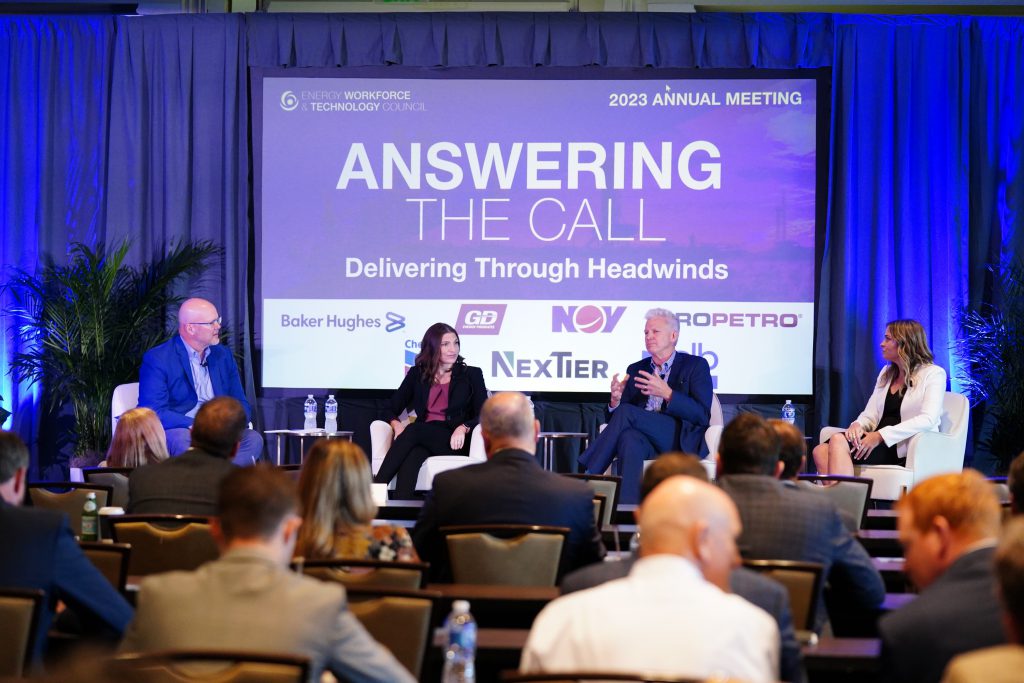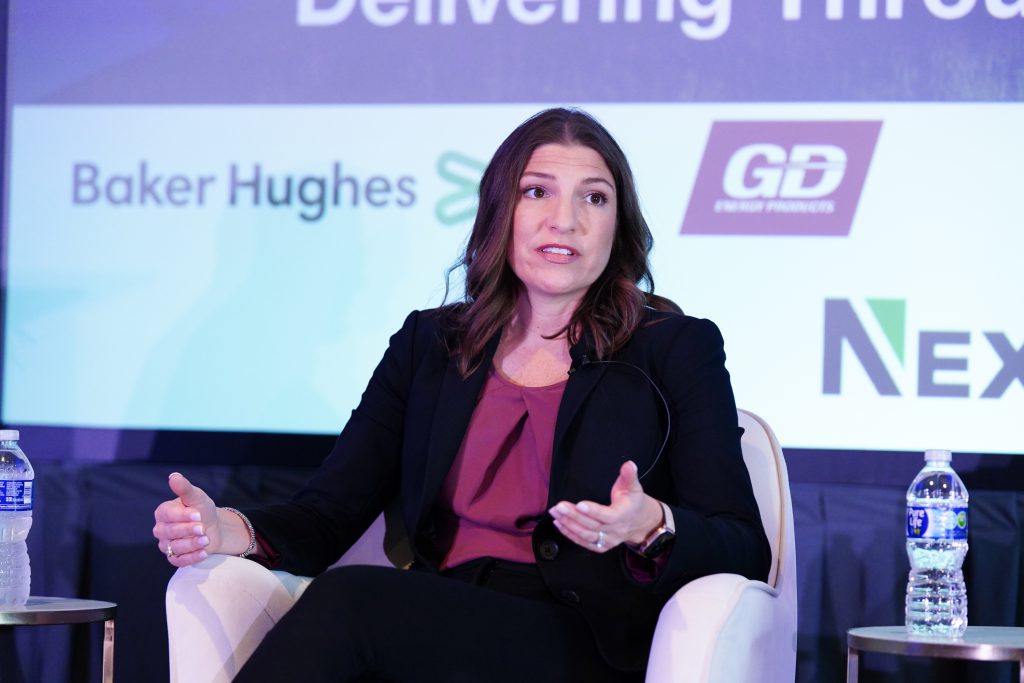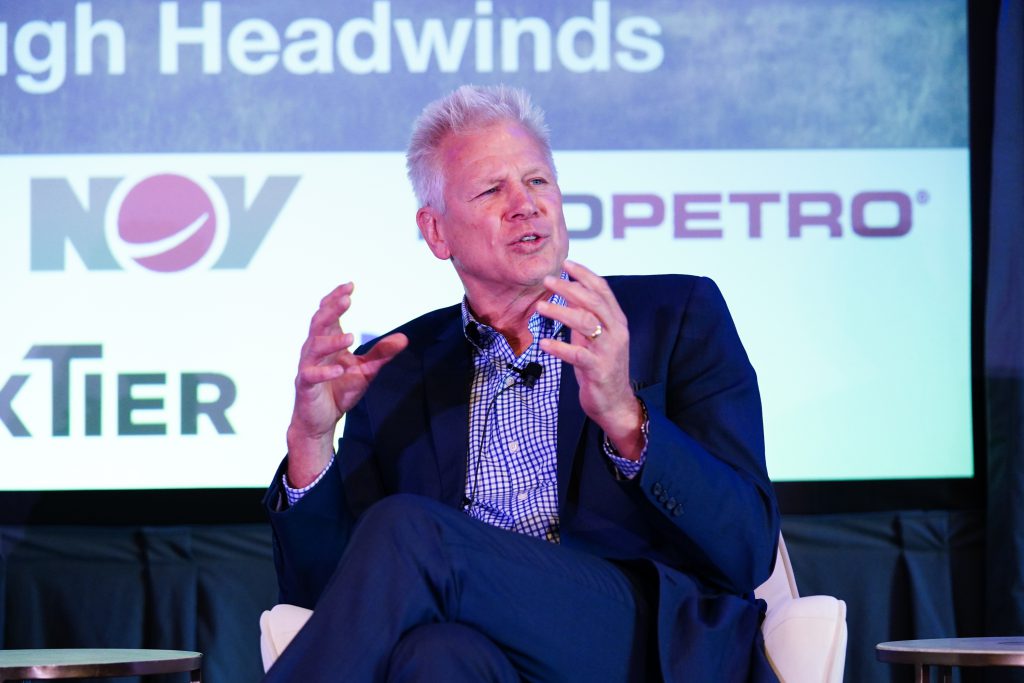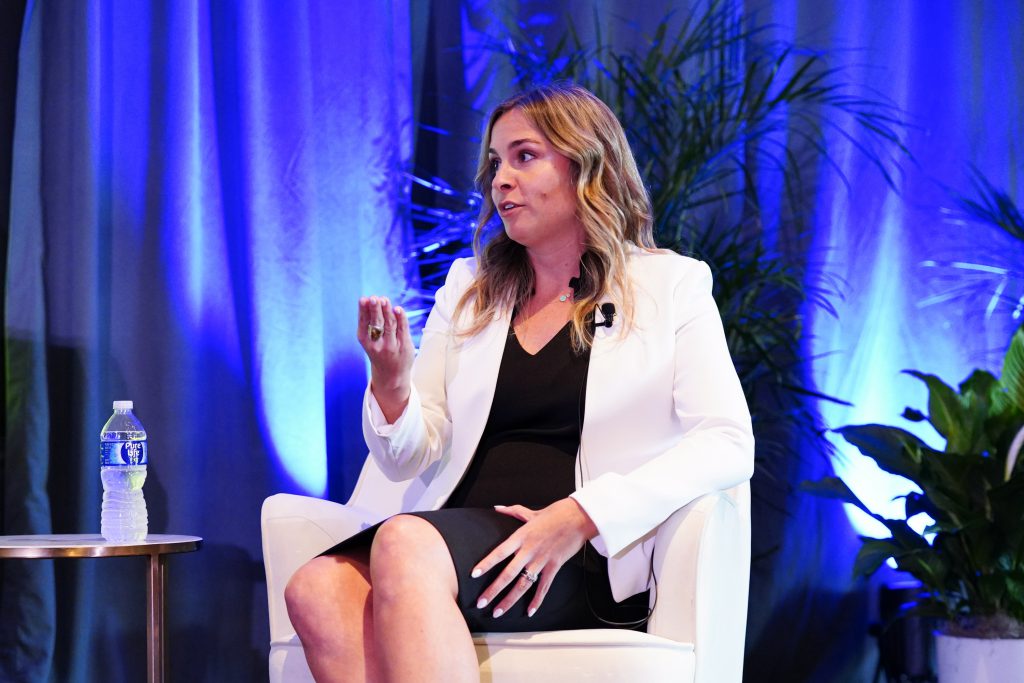
A panel focused on how to strategically introduce carbon management and emissions into business practices closed out the second day of the 2023 Annual Meeting.
Maynard Holt, Founder & CEO, Veriten, moderated the panel, which included Robin Fielder, EVP, Low Carbon Strategy & Chief Sustainability Officer, Talos Energy; Warwick King, Vice President Low Carbon Technologies, ConocoPhillips; and Molly Smith, Vice President Drilling & Completions, Murphy Oil Corporation.
The panel discussed what their businesses are doing to lower emissions, their definition of sustainability and how to turn carbon into a business. Recognizing oil and gas will be necessary for decades to come, they are focusing on how to do what they do best, but with lower greenhouse gas intensity.
“Sustainability for me is about strategy,” Fielder said. “It’s about how are we going to position the business to be successful to attract additional investors to navigate through changing demand for our product over a longer period of time. But it’s also about attracting the right talent for us to be a successful energy company.”
King said ConocoPhillips primary goal is to work with their business units across the globe to help them decarbonize.
“We believe fossil fuels will be needed for decades and maybe well into the next century. We believe we are very good at what we do, and that we should focus on making sure that our products are both the lowest cost of supply and the lowest GHG intensity.”
Warwick King, ConocoPhillips
Smith touched on the need to partner with the services sector to meet emissions reducing goals.
“We have committed to reducing our emissions by 20% by 2030. But we want to provide affordable energy. We will look to our service providers to help with new technology and where and how to deploy. We are definitely open to trying new things when they prove to show tangible improvements.”
Molly Smith, Murphy Oil Corporation
The panelists also discussed strategic planning and budgeting for projects.
“Through our ESG committee, our subcommittee on energy transition looked at the policies put forth and what is the future. That was the birth of our low carbon business. We bid on the first and still only offshore CO2 lease in the U.S. From that one project, we now have three projects, both onshore and offshore.”
Robin Fielder, Talos Energy
She added, “There are a lot of dollars being raised for energy transition projects. A lot of infrastructure projects, including CCUS. It is really encouraging and enabling us to be more successful.”
King noted the importance of the environment the company is working within and how to maximize resources.
“One of the first things I did in my first year was determining what is the playing field,” King said. “What are the rules that will be required across several different countries, and making sure we are all working towards a common goal.”
Smith added, “We are an oil company, and we want to provide energy and provide it better. We are definitely open to trying new things, including implementing new technologies. We also have to make sure what we deploy makes sense for us as a company. If it doesn’t make economic sense, then we aren’t going to do it.”
The panelists also discussed the opportunities that carbon credits allow and the need as companies work to develop and implement new technologies as they strive to meet NetZero goals.
“I do believe credits will play a role,” King said. “The technology supply chain is very expensive. Many cities, countries, towns all want to reach NetZero by 2050 without truly understanding the cost. This is a great opportunity as 2050 is not that far away, especially from a technological perspective and without offsets, many people will not be able to deliver.”
Fielder added, “We are developing CO2 as a commodity. Part of our strategy is to consider what other services we are offering and how we can position ourselves and take advantage of these credits.”
When asked about the regulatory environment and what would be essential in building out carbon capture, Fielder is looking to primacy for states.
“We are hopeful that state primacy will help,” she said. “North Dakota has been able to successfully pursue sequestration permits quicker as they have primacy from EPA. We are hopeful that Texas and Louisiana will do the same.”
Corry Schiermeyer, Senior Director Communications, writes about governmental policies for the Energy Workforce & Technology Council. Click here to subscribe to the Energy Workforce newsletter, which highlights sector-specific issues, best practices, activities and more.







